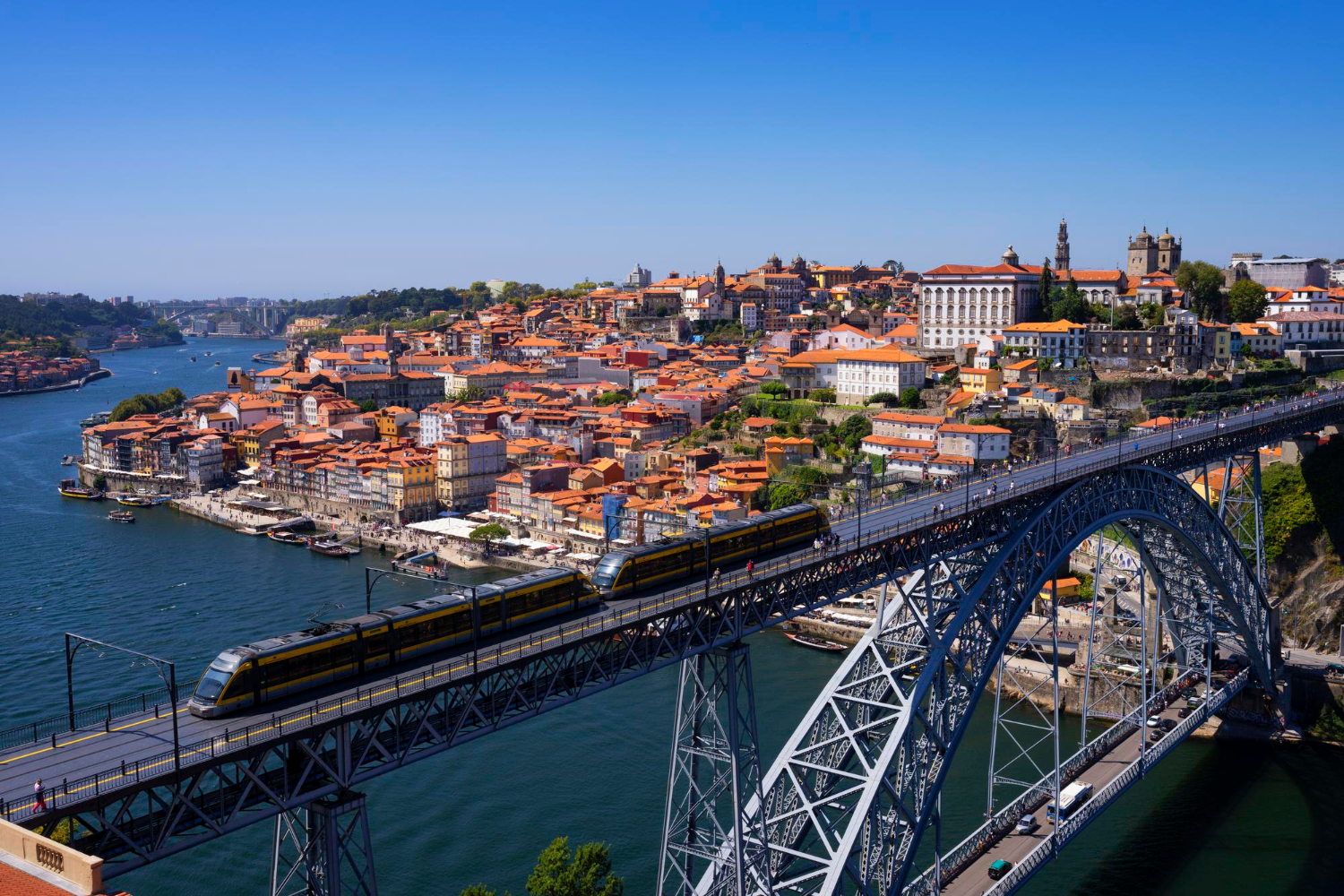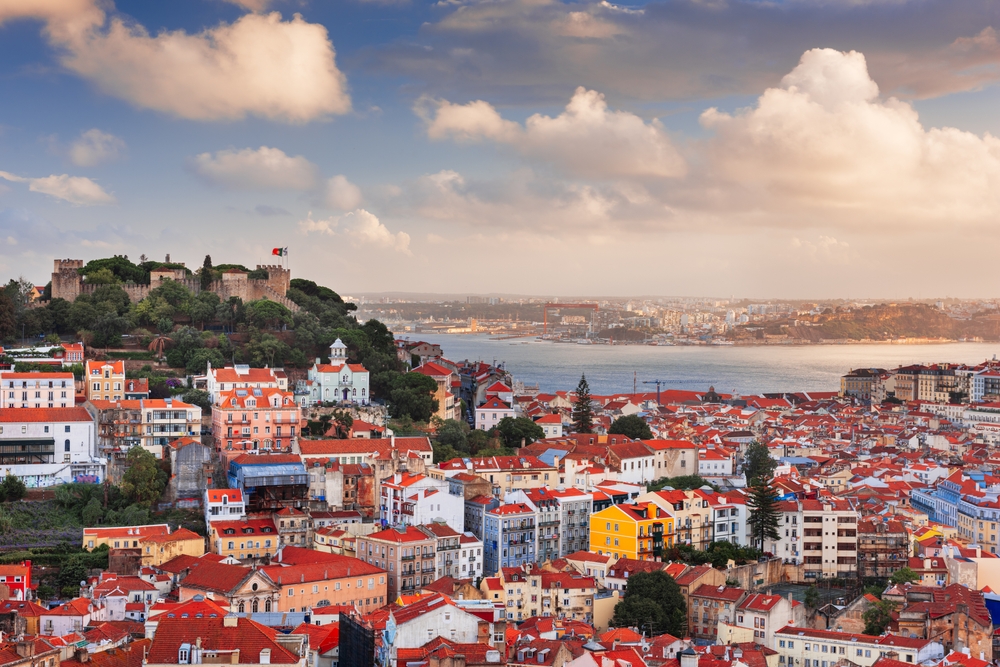%20(1).png)
Portugal, famous for its sun-kissed landscapes, has emerged as the ultimate choice for retirees from Britain who are in search of pleasant weather and opportunities to reduce their tax burdens. But it was not always their preferred destination.
Back in May 2020, only 11,000 British retirees resided in Portugal. In contrast, neighbouring Spain was home to over 106,000 British pensioners at the same time, as per DWP statistics.
Portugal's appeal lies in its generous tax incentives that significantly reduce pension taxes for international retirees moving there, sometimes by more than half. Furthermore, the country provides access to subsidized healthcare for all legal residents, ensuring that expatriates enjoy the same healthcare privileges as the local population.
However, relocating to Portugal isn't without challenges, and certain conditions must be met for approval.
Retirement Funds and Portugal's Financial Requirements
Unlike some European Union countries with high financial barriers, Portugal has relatively low-income requirements for non-EU pensioners. Retirees must demonstrate that their income from various sources, including savings, private and state pensions, dividends, and rental income, meet the minimum requirement.
The benchmark for British pensioners in Portugal is the country's minimum wage, which stands at €760 per month in 2023. This translates into a yearly sum of €9,120 (£7,930) for an individual or €13,680 (£11,895) for a couple.
After obtaining a visa from the Portuguese consulate in Britain, retirees have four months to obtain a two-year residency permit. Subsequent permits last for three years, and after a five-year period, individuals can apply for permanent residency and even a Portuguese passport.
The current full new state pension in the UK is £10,600 annually, which surpasses Portugal's D7 Passive Income Visa requirement for a single person.
Visa Procedures and Residency Rights
Post-Brexit, anyone intending to reside in an EU country for more than 90 days must apply for a long-stay visa. In Portugal, this means acquiring a Portuguese NIF number and opening a local bank account.
Two visa options exist for pensioners. The D7 Passive Income visa costs €90, requires proof of accommodation, and is valid for four months before needing to be replaced with a two-year residency permit at €160. This also involves presenting evidence of sufficient funds and medical insurance coverage.
Alternatively, there's the "Golden Visa," a pricier option linked to investments in the local economy, like real estate. While certain options are being phased out, other investment routes remain.

An Overview of Portuguese Tax Rules
Portugal's Non-Habitual Residence (NHR) status offers several tax advantages, including a flat 10% tax on pension income sourced from abroad. Government employee pensions are the only exception and remain taxable in Britain.
Portugal Pathways visa experts state: "The 10-year NHR regime is very attractive to both retirees and all people who benefit from it. This regime allows pension income to be taxed at 10% and any non-Portuguese income to potentially be tax free. This includes UK dividend income. After the 10-year NHR regime has ended if correct planning has taken place Portugal is one of the most tax efficient countries to live"
These favourable tax conditions mean that international retirees in Portugal would pay substantially lower taxes compared to staying in the UK.
Contact our expert team to find out how you can maximise your opportunities...
Additionally, Portugal levies no wealth tax but does impose an additional property tax on properties worth over certain thresholds, with rates increasing as property values rise.
Though Portugal doesn't have explicit inheritance or estate tax, there's something known as "Stamp Duty" at 10%, but exemptions apply to spouses, children, and parents. Local succession rules might lead to unexpected inheritance distributions, but new European regulations since 2015 have provided alternatives.
A Look at Property Prices
When it comes to real estate, Portugal generally offers more affordable options than Britain. However, prices can vary widely by region. Lisbon boasts the highest property prices, averaging €3,081 per sq. meter as of March 2021, while places like Lagoa in the Algarve have properties at an average of €1,361 per sq. meter.
Conclusion
With its blend of appealing weather, beneficial tax laws, and beautiful scenery, Portugal is an increasingly attractive destination for British retirees. However, understanding the rules around visas, taxes, and property can make the transition smoother and more financially beneficial.
Tax Authority Author & Bio: Pedro Silva
Introducing Pedro Silva, a respected writer well-versed in Portugal's tax systems, with a particular focus on the Non-Habitual Residency (NHR) regime. Pedro's expertise lies in simplifying the complexities of taxation in Portugal, making it accessible to individuals and businesses. His articles offer a comprehensive understanding of tax frameworks and strategies, empowering readers to navigate the financial landscape effectively. With Pedro's guidance, you can harness the benefits of Portugal's tax incentives and optimize your financial position.
Secure EU Residency Through Portugal’s Golden Visa By Investment
Gain visa-free travel, family inclusion, and a secure path to EU citizenship
Maximise your wealth, tax status, property & life in Portugal
Talk to our expert team, so that we can offer personalised support to meet your specific needs.





